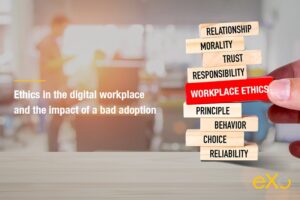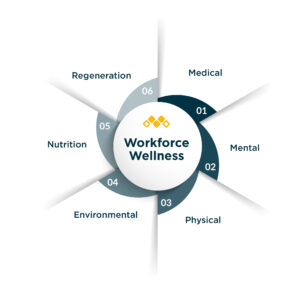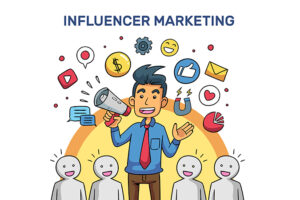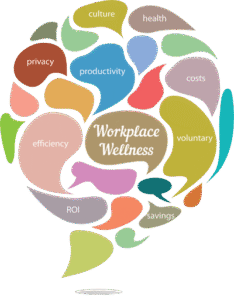Navigating the AI Frontier: Addressing Bias and Ethical Challenges in Modern Recruitment Tech
6 min read
The rapid integration of Artificial Intelligence (AI) into global recruitment processes is transforming how organizations identify and hire talent, offering unprecedented efficiencies and scalability. However, this technological leap brings with it a critical imperative: the need for ethical implementation. At
The Rise of AI in Hiring: Benefits and Emerging Ethical Imperatives
AI’s role in recruitment has expanded dramatically, moving beyond simple resume screening to encompass complex tasks like sentiment analysis during video interviews, predictive analytics for job performance, and even personality assessments. This evolution promises to streamline workflows, reduce time-to-hire, and potentially mitigate human biases. Companies leveraging AI often report significant gains in efficiency, sometimes reducing hiring cycles by as much as 30% and processing thousands of applications with speed impossible for human teams.
Despite these advantages, the darker side of AI’s power has begun to surface. Recent revelations and academic studies have highlighted instances where AI algorithms, trained on historical data reflecting past human biases, inadvertently perpetuate or even amplify discrimination. For example, some systems have been found to favor male candidates for tech roles due to historical male dominance in the industry data they were fed, or to penalize candidates whose communication styles deviate from a perceived norm, often impacting non-native speakers. The imperative for Ethical AI Recruitment has thus become a cornerstone of modern talent acquisition strategies, demanding that technology serves as an enabler of fairness, not a reproducer of prejudice.
Key Developments in Ensuring Fair and Unbiased AI Systems
The global community is grappling with multifaceted challenges in making AI recruitment truly ethical. Several key areas are at the forefront of this evolving discussion:
- Algorithmic Bias Mitigation: This is arguably the most critical concern. AI models learn from data, and if historical hiring data contains biases (e.g., favoring certain demographics, educational backgrounds, or even names), the AI will learn to replicate these biases. Experts and tech developers are now focusing on creating debiasing techniques, such as using balanced datasets, adversarial training, and re-weighting algorithms to ensure fairness across protected characteristics. Industry observers highlight that comprehensive auditing of AI models throughout their lifecycle is essential to detect and correct embedded biases.
- Transparency and Explainability (XAI): The “black box” nature of many AI algorithms makes it difficult to understand why a particular hiring decision was made. This lack of transparency erodes trust and makes it challenging to identify and rectify errors or biases. The movement towards Explainable AI (XAI) aims to develop AI systems whose decisions can be easily understood and interpreted by humans. This is crucial for accountability and for building confidence in AI-driven recruitment outcomes.
- Data Privacy and Security: AI recruitment systems process vast amounts of personal data, including resumes, video recordings, and assessment results. Ensuring the robust protection of this sensitive information against breaches and misuse is paramount. Adherence to global data protection regulations like GDPR and CCPA, along with ethical data handling practices, forms a critical pillar of Ethical AI Recruitment. Organizations must implement stringent security measures and clearly communicate their data handling policies to candidates.
- Regulatory and Policy Frameworks: Governments and international bodies are beginning to develop guidelines and regulations specifically addressing AI in employment. The European Union’s proposed AI Act, for instance, categorizes AI systems used in recruitment as “high-risk” due to their potential to significantly impact individuals’ lives, subjecting them to strict requirements before market placement. Similar initiatives are emerging in other regions, signaling a global push towards standardized ethical AI practices in hiring.
Impact Analysis: Navigating the AI Recruitment Landscape for Global Talent
For international students and global talent, the advent of AI in recruitment presents a dual challenge and opportunity. While AI can potentially broaden reach and reduce initial human bias, it can also introduce new hurdles:
Potential for Disadvantage:
- Accent and Cultural Bias: AI-powered video interview analysis, for example, might misinterpret accents, intonations, or non-verbal cues from diverse cultural backgrounds, potentially disadvantaging international candidates.
- Data Gaps: AI models trained predominantly on Western demographic data might struggle to accurately assess candidates from underrepresented regions or educational systems, leading to overlooked talent.
- Lack of Nuance: AI might struggle to pick up on transferable skills or cultural adaptability – qualities highly valued in global mobility – if not explicitly programmed to do so.
Opportunities and Adaptation:
- Wider Reach: AI can help international students get past initial screening stages for roles they might not have been considered for in purely manual processes, due to its ability to process a larger volume of applications.
- Merit-Based Assessment: When properly designed and audited, Ethical AI Recruitment systems can focus purely on skills and competencies, reducing human biases related to nationality, ethnicity, or gender.
- Preparation is Key: Understanding that AI is a component of modern recruitment allows international students to adapt. This means practicing for AI-driven interviews, focusing on quantifiable achievements in their applications, and presenting their unique experiences in a structured, accessible manner.
The shift necessitates that visa applicants and future migrants are not just proficient in their technical skills but also adept at navigating technologically mediated hiring environments. This adaptation is crucial not only for securing employment but also for successfully integrating into new workforces and, by extension, supporting their visa applications.
Expert Insights and Practical Tips for Stakeholders
Achieving truly ethical AI in recruitment requires a concerted effort from all stakeholders:
For Employers and Recruiters:
- Audit and Iterate: Regularly audit AI systems for bias, fairness, and performance. Be prepared to refine algorithms and datasets based on audit findings.
- Diversify Datasets: Actively seek to train AI models on diverse and representative datasets to prevent the perpetuation of historical biases.
- Maintain Human Oversight: AI should augment, not replace, human judgment. Recruiters should retain final decision-making authority and review AI recommendations critically.
- Prioritize Transparency: Be transparent with candidates about the use of AI in the hiring process and explain how decisions are made.
- Invest in Ethical AI Training: Educate HR teams and hiring managers on ethical AI principles and how to identify and mitigate bias.
For International Students and Job Seekers:
- Understand the Tech: Research how companies use AI in their recruitment processes. If video interviews are AI-analyzed, understand what aspects are being evaluated (e.g., speech clarity, facial expressions, keyword usage).
- Optimize Your Application: Ensure resumes and cover letters are clear, concise, and keyword-rich, as AI systems often rely on keyword matching. Focus on quantifiable achievements.
- Practice AI-Driven Interviews: Utilize online tools or mock interviews to familiarize yourself with the format and requirements of AI-powered assessments.
- Highlight Cultural Nuances: While AI may struggle with nuance, human reviewers often value cultural intelligence and adaptability. Ensure your overall profile, beyond AI screening, conveys these strengths.
- Leverage Human Networks: While AI automates initial screening, human networking remains invaluable for gaining insights, referrals, and making a personal connection that might bypass or complement AI screening.
Understanding these dynamics is paramount for international students looking to secure employment abroad, as successful job acquisition is often a prerequisite for many visa categories. Our team at
Looking Ahead: The Future of Responsible AI in Global Recruitment
The journey towards fully Ethical AI Recruitment is ongoing, marked by continuous innovation, regulatory evolution, and a growing consensus on responsible AI practices. The future will likely see a hybrid approach, where AI tools handle the heavy lifting of initial screening and data analysis, while human recruiters focus on deeper engagement, qualitative assessments, and empathetic decision-making. This human-in-the-loop model promises to harness AI’s power while safeguarding against its pitfalls.
Moreover, the development of global standards and certifications for ethical AI will play a pivotal role in fostering trust and accountability. As AI technology advances, so too must our commitment to ensuring it serves humanity justly and equitably. The vision is clear: AI should be a tool that opens doors, reduces barriers, and creates genuinely diverse and inclusive workforces, reflecting the rich tapestry of global talent.
Reach out to us for personalized consultation based on your specific requirements.



